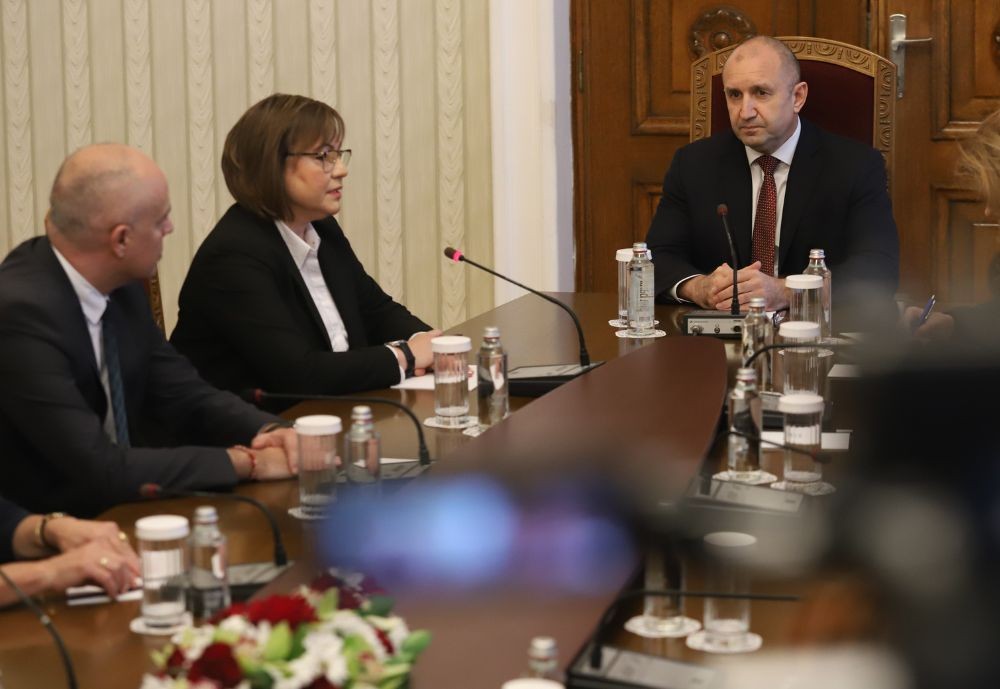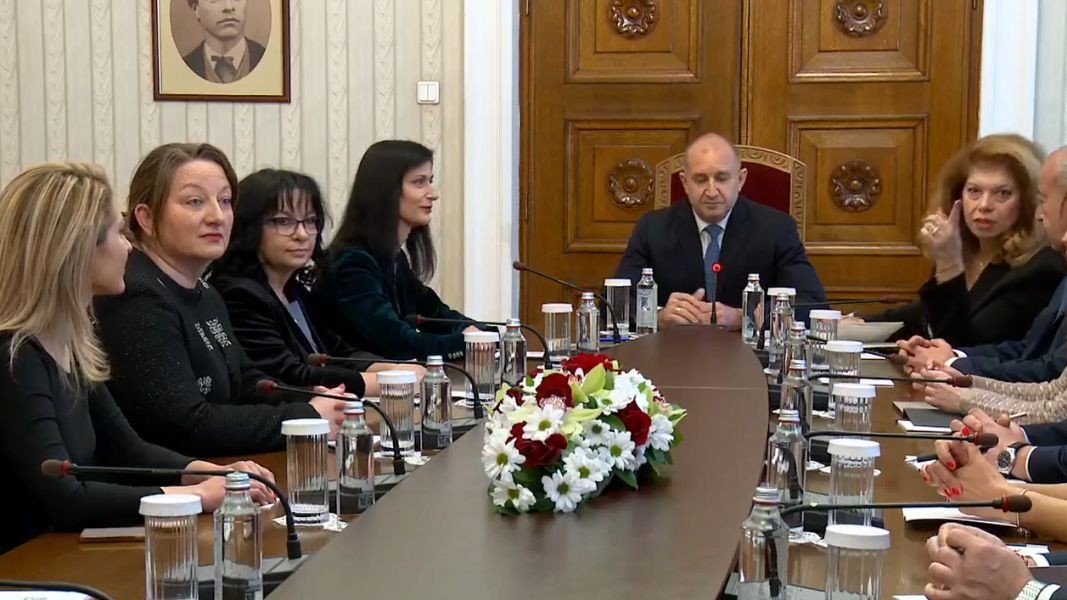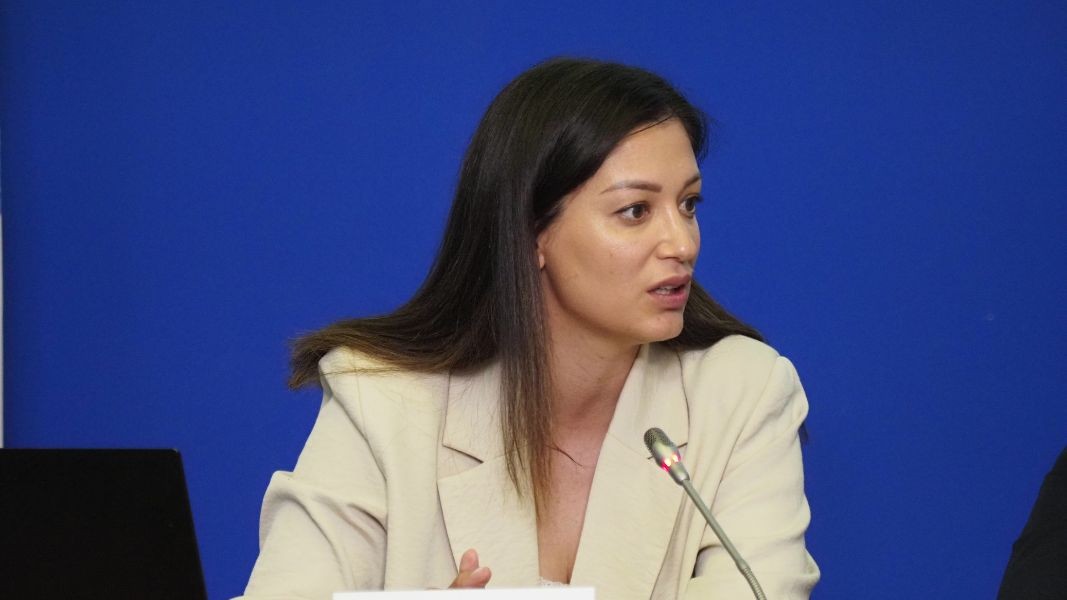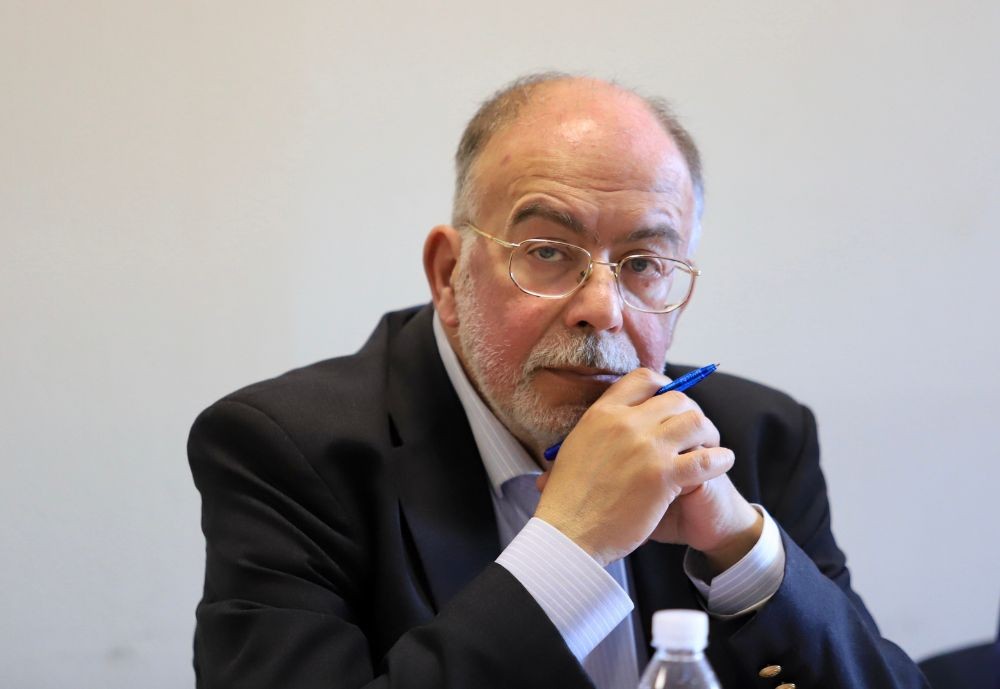Bulgaria is on the cusp of the first in its democratic history rotation of government, agreed upon nine months ago by the first and the second political force in parliament – GERB/SDS and We Continue the Change/Democratic Bulgaria (PP/DB), as a precondition for the formation of a government and finding a way out of the political crisis. But is swapping seats within the Council of Ministers going to go smoothly, or is Bulgaria going to move towards one more snap election?
In the past two days the president conducted consultations with the parties represented in the National Assembly, in accordance with the constitutional procedure, before handing a mandate for the formation of a government over to the first parliamentary force – GERB/SDS. At these consultations the opposition parties in parliament called for parliamentary elections because, as Bulgarian Socialist Party (BSP) leader Korneliya Ninova put it “this government is detrimental to Bulgaria”. Yet the parties involved in the conflict-ridden government have made it clear they will do what needs to be done to form a government. The negotiations on the governance priorities continue between GERB/SDS and PP/DB, and the public has been given to understand they are being conducted in a constructive atmosphere. On her part, Mariya Gabriel, foreign minister in the government headed by PM Nikolai Denkov, urged the president to give them more time for negotiations before he hands the government-formation mandate. The Movement for Rights and Freedoms, the party that distinctly supports GERB’s positions, assured Rumen Radev that they will continue to be a factor of stability and to “support what we deem to be to the benefit of the people”.
Many people in the country say the rotation will go ahead as “the parties are not well positioned for elections”, a vox pop among people in Vidin shows:
“Maybe they will remain in an “assemblage” of some kind because possible elections will likely replicate the same result which will only mean financial losses for the country,” one member of the public told BNR’s reporter Iva Antonova. An elderly lady was sceptical:
“Who knows what will happen? Obviously, they can’t agree on how much money to split between themselves. They’ve got their hands on a piece of the pie and they’re not going to let go of it…”
Sociologist from Trend sociological agency Evelina Slavkova is more of an optimist as regards the lifespan of the government. The rotation will help us draw certain conclusions, she says:
“It will give us the answers to several questions. The first is – who is prepared to back down from their redlines and to what an extent, the other one will be – what the real relations are among the partners in this so-called “non-coalition”.”
Sociologist Kolyo Kolev does not subscribe to the idea that one more snap election will only reaffirm the status quo in parliament. He says there exists enormous public discontent, and “if early elections are held there is every chance this thing will go off” and “it is precisely for this reason that insinuations are constantly being made by so-called analysts – there is no point because it will be more of the same”. 
“Society is hungering for a new formation that will cater to the hopes in society that something can change,” Kolyo Kolev said in an interview with BNR’s Horizont channel. A possible party project of the president, other political formations that will come as an alternative to the status quo will also have a hand in rearranging the political picture if new elections are to be held in the country, Kolyo Kolev says.
A new government will be formed on the first mandate, says Assoc. Prof. Venelin Stoychev from the Bulgarian Academy of Sciences’ Institute of Philosophy and Sociology:
“Agreement will be reached but the question is what will come of this rotation for society and for our development. It seems to me it is important to go through these processes from the point of view of democratic society. The big problem of the “assemblage” is that there is no real separation of powers around us and to make up for that there is need of “assemblages” to make up for these public deficits.”
However, politicians’ public speech gives rise to certain unfavourable trends:
“That is a problem because there are people who get a perverse kind of pleasure out of watching this kind of speech in parliament and coming from public institutions,” Assoc. Prof. Stoychev says. “But politics begin where we stop talking about the people, when we come to the realization there are citizens, and these citizens have interests and they can come together to stand up for their interests. When society is strong, the state is healthy. But in this country, because society is not strong, we have a corrupt state which has been corroding away at the very possibility of the development of society.”
Interviews by Diana Doncheva and Snezhana Ivanova, Horizont channel, BNR, Ivanka Petkova, BNR-Plovdiv, Iva Antonova, BNR correspondent in Vidin
Compiled by Yoan Kolev
Translated and posted by Milena Daynova
Photos: BTA, BGNES, Ani Petrova
On May 8, extraordinary parliamentary elections and a second round of presidential elections were held in North Macedonia. Before the vote, one of the leading Albanian publicists in the country called the Bulgarians "orphans" in the..
The 30-day election campaign in Bulgaria begins at midnight on 10 May – the 6 th campaign for national parliament in the space of three and a half years. What makes this one different is that this time the voting will be for both members of the 50..
Many Greeks choose the new option of voting by mail More than 157,000 Greek citizens have registered to vote by mail at the election for European Parliament on 9 June, the Kathimerini newspaper writes, citing official data. Around 116,000 of the..

+359 2 9336 661
